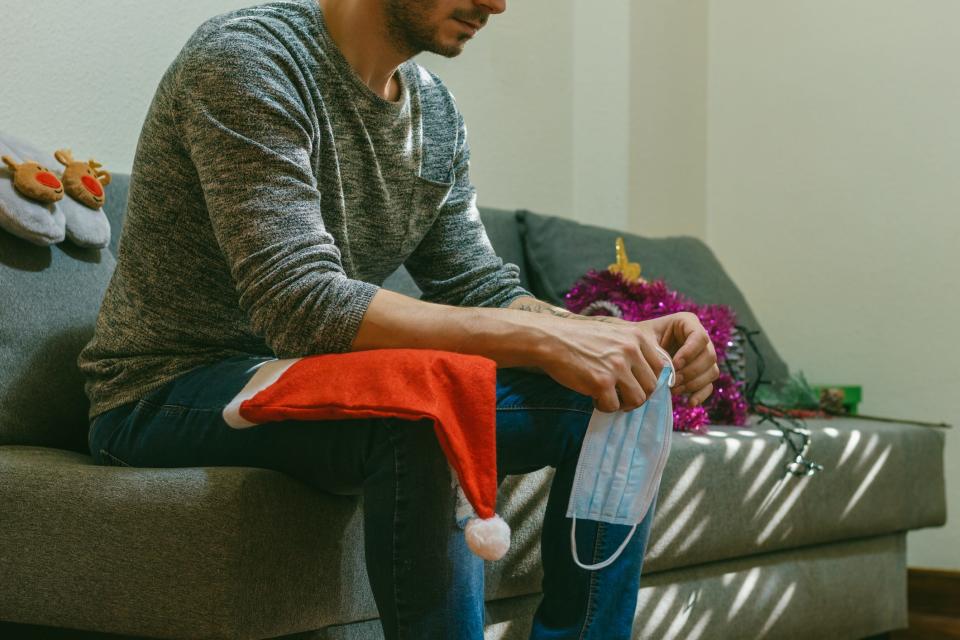Government can't solve our 'loneliness epidemic,' but we can. It's easier than you think.
President Biden is finally dismantling the last remaining COVID-related restrictions. But don’t worry: U.S. Surgeon General Vivek Murthy has announced a new epidemic.
This one didn’t escape from a wet market and certainly wasn’t created in a lab. Dr. Murthy has declared “an epidemic of loneliness.”
“Millions of people in America are struggling in the shadows, and that’s not right,” Murthy said. “That’s why I issued this advisory to pull back the curtain on a struggle that too many people are experiencing.”
Loneliness has real impacts on our health
The surgeon general released an 81-page report this week showing that half of U.S. adults say they’ve experienced loneliness.
That number seems low — who hasn’t felt lonely? — but just 39% answered that they “felt very connected to others.”
From U.S. surgeon general: Our kids' mental health is as critical as their grades. Here's how to prioritize both.
All the lonely people: Why Americans' isolation is a threat to our democracy
Murthy took action when research tied serious mental and physical health risks to social disconnection.
According to the report, loneliness leads to higher instances of disease, dementia, stroke, depression and anxiety.
The damage to life expectancy is as deadly as smoking up to 15 cigarettes daily. All of this adds to higher health costs, loss of worker productivity and declining community cohesion.

It's not just COVID. Americans have been isolating ourselves for years
Every governmental policy bears unintended consequences. Unsurprisingly, the strict COVID-19 lockdowns forced upon much of the country helped stoke this new epidemic.
But those restrictions hardly deserve all the blame.
Over the past two decades, individual social participation with friends and family has fallen, along with larger-scale community involvement. Fewer people are married and couples have fewer children.
Outside of relatives, Americans are far less likely to join community organizations or show up for religious services. Just 20% attend faith communities on a weekly basis.
Americans see each other as enemy: Americans increasingly don't value God, country or children. Can anything still unite us?
'Not left or right, but deep': How people of faith can help to heal America's divisions
Then, of course, there’s technology. When you can work from home and attend school online, there are fewer reasons than ever to change out of your pajamas.
Technology, social media made the problem worse
Bored teens in the 1980s would head to the mall and run into a dozen friends eager to catch a movie or annoy retail staff.
Today, the friends all reside in a teen’s smartphone, with many located across the country or on the other side of the world.
Adults are much the same. With a few clicks, everything from meals to clothes to books are dropped on our doorsteps.
Dr. Phil: Want your teen to feel happier and less anxious? Get them off their phone and social media.
Stop AAPI hate: New survey shows increase in anti-Asian hate, discrimination. Here's how we can stop it.
Worse still, one can tailor their online communities to weed out anyone with different politics, interests or opinions. With a large chunk of Americans never exposed to a contrary viewpoint, it’s no wonder we’re at each other’s throats.
We all know social isolation is a problem and are pretty sure what’s causing it. It’s time to fix it for our own health as well as our community’s.
Feeling lonely? Here are some things you can do
Murthy offers a few ideas but few show much hope. We can tweak family leave and pass a tech reform or two, but top-down public policy solutions won’t improve much.
What will cure loneliness just requires a bit more effort from each of us.
Join a social club or community organization. And actually show up; no Zoom allowed.
Visit your church, synagogue, or mosque and sign up as a volunteer for anything that strikes your fancy.
Seriously, if I can do this stuff anyone can.
I’m a serious introvert by nature and love my alone time. Yet I made a commitment two years ago to meet with a friend for lunch or coffee every week or two to strengthen those critical ties.
Now, they’re the highlight of my week.
I applaud Murthy for calling attention this epidemic, but even he must know loneliness can’t be fixed by a federal agency. Ultimately, it’s up to us.
So, call a friend and invite them to lunch. Yes, you’ll have to change out of your pajamas, but won’t kill you.
It might just save your life.
Jon Gabriel, a Mesa resident, is editor-in-chief of Ricochet.com and a contributor to The Arizona Republic and azcentral.com, where this column was first published. On Twitter: @exjon.
You can read diverse opinions from our Board of Contributors and other writers on the Opinion front page, on Twitter @usatodayopinion and in our daily Opinion newsletter. To respond to a column, submit a comment to letters@usatoday.com.
This article originally appeared on Arizona Republic: US epidemic of loneliness is real. Ending it is easier than you think

